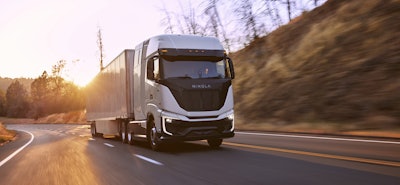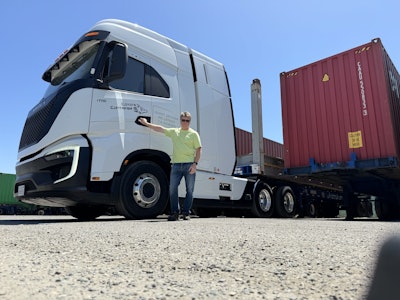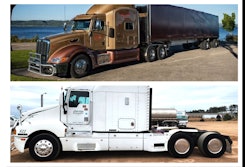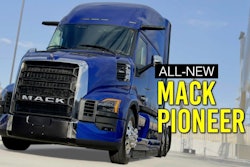
Here's what you need to know:
- Nikola Motors filed for bankruptcy in February 2025, creating significant challenges for trucking fleets in California that purchased its zero-emission semis.
- Fleet operators now face issues with unavailable Nikola replacement parts, lack of manufacturer support, and unaffordable hydrogen fuel, making their trucks inoperable.
- At least one owner continues to pay storage and insurance fees for an unusable truck.
- The California Air Resources Board (CARB) acknowledges the situation but offers limited support.
California trucking fleets who invested in zero-emission semis are facing financial and logistical challenges in the wake of Nikola Motors' February 2025 bankruptcy filing, specifically a lack of replacement parts and high hydrogen fuel prices.
In Nikola's final months, the Phoenix, Ariz.-based manufacturer of zero-emission hydrogen fuel cell (FCEV) and battery-electric Class 8 semis faced financial struggles it ultimately couldn't overcome for several reasons, such as a market not ready to switch from traditional diesel to hydrogen and/or battery powertrains. The lack of a nationwide hydrogen refueling infrastructure and the typically high price of hydrogen fuel didn't help matters.
On April 7 came news that luxury EV automaker Lucid won the auction for Nikola's factory and assets. The deal, however, did not include any unsold trucks, existing customers, or intellectual property.
[Related: Lucid wins Nikola bankruptcy auction, buys factory and assets]
So, what's next for Nikola's remnants, including its hydrogen fuel supplier subsidiary, HYLA? Are fleets able to run these new technology-packed semis without ongoing manufacturer support? What about a framework for handling basic repairs and general maintenance?

Critical questions remain unanswered.
Clean Trucking spoke to a former corporate-level Nikola employee and two California-based fleet specialists who purchased and, until recently, operated Nikola semis, regarding the post-bankruptcy situation and what's being done by the Calif. government to help find solutions.
The new reality
Nikola reportedly sold 235 examples of its Tre FCEV semi since it hit the market in late 2023. One of those buyers was William Hall, manager of San Francisco Bay Area Coyote Container and owner of the first Nikola Tre sold in the state.
"Nikola developed some very good hydrogen truck technology," Hall told Clean Trucking. "Now we need some fuel. My truck has not been in service for months due to lack of fuel. FirstElement quoted me $35/kg. There is no way that will be feasible."
To compare, his first adopter HYLA contract price was $6/kg.
"California either needs to pull the plug on hydrogen or get us some fuel at diesel prices."
[Related: FCEV early adopter's operational concerns come to life]
Hall has since written to Calif. Governor Gavin Newsom to express his frustrations with the California Air Resources Board's (CARB) policies, pointing out that his $124,000 investment in a Nikola Tre, of which he received an additional $360,000 from public contributions through the Hybrid and Zero-Emission Truck and Bus Voucher Incentive Project (HVIP) and Innovative Small e-Fleet (ISEF) voucher programs, has resulted in a total loss for his three-truck small company.
Meanwhile, he spends almost $1,300 monthly on parking and insurance for an out-of-service truck. It had previously been driven 38,000 zero-emission miles and completed over forty 800-mile round trips between the Ports of Oakland and Long Beach.
"Due to the lack of an affordable hydrogen fuel supply and manufacturer warranty support, the vehicle is inoperable," Hall acknowledges.
 William Hall, owner of California-based Coyote Container, stands next to his now out of commission Nikola Tre semi.William Hall/Coyote Container
William Hall, owner of California-based Coyote Container, stands next to his now out of commission Nikola Tre semi.William Hall/Coyote Container
What's CARB response?
"Nikola’s bankruptcy is an unfortunate development for vehicle owners and fleet operators," said a CARB spokesperson. "CARB and our HVIP and ISEF implementation partner, CALSTART, are open to hearing from impacted businesses to discuss their needs and explore potential options with CARB's collaborating partners for infrastructure options.
"While CARB does not have authority over funds for hydrogen and charging infrastructure, we remain committed to working in partnership with other government agencies and industry organizations in support of zero-emission vehicle infrastructure for trucks and fleets."
Gov. Newsom's Director of Communications did not respond to our request for comment.
Repairs & overseas consequences
Mike Bush, head of marketing for Chino, Calif.-based Talon Logistics, also took advantage of the state's voucher programs to help purchase five Nikolas.
Recently, one of them was involved in a collision that resulted in a mangled front bumper. Typically, this is a quick and simple fix but there's no longer a manufacturer to supply replacement parts.
"There's no one to call at Nikola because Nikola doesn't exist anymore. The phone has literally been disconnected," Bush said. "We're still working through options for repairs."
Issues surrounding Nikola's downfall aren't limited to the U.S.
Homburg, Germany is home to a Bosch factory that manufactured mobile fuel cells for Nikola. The assembly line, according to Hydrogen Insight, is now at a standstill. Discussions with a potential new customer are supposedly taking place but nothing has been announced.
What happens next?
"I've heard rumors that Nikola has been having discussions with people about its Intellectual Property (IP)," the former Nikola employee told Clean Trucking under condition of anonymity.
Hyundai is one possible candidate because acquiring Nikola's IPs could help its XCIENT Class 8 FCEV program.
"Hyundai could be interested. There is value in what Nikola did. It still worked. We still sold semis. It has gotta be worth something. The R&D work and people involved all made major contributions," our source continued.
Freightliner is another contender but "Hyundai would probably be the strongest one because of its unlimited pockets."
Despite its collapse, our source is confident Nikola left its industry mark and that FCEV technology still has a future in commercial trucking.
"There will be a legacy effect with Nikola’s achievements for clean tech trucking. In a few years' time, Nikola’s legacy will be there."
Nikola customers we spoke to, however, are in no mood to discuss legacy just yet. They answered California's call for zero-emission trucking in accordance with its environmental goals but now feel abandoned by the state and Nikola.
Further driving their frustrations was this month's announcement that California repealed its Advanced Clean Fleets (ACF) rule which mandated that every new medium- and heavy-duty vehicle sold in the state must be 100% zero-emission by 2036.
Critics argued the goals were unrealistic.
"California taxpayers and businesses should expect the zero emissions results they contributed towards and invested in to foster," Hall concluded.











